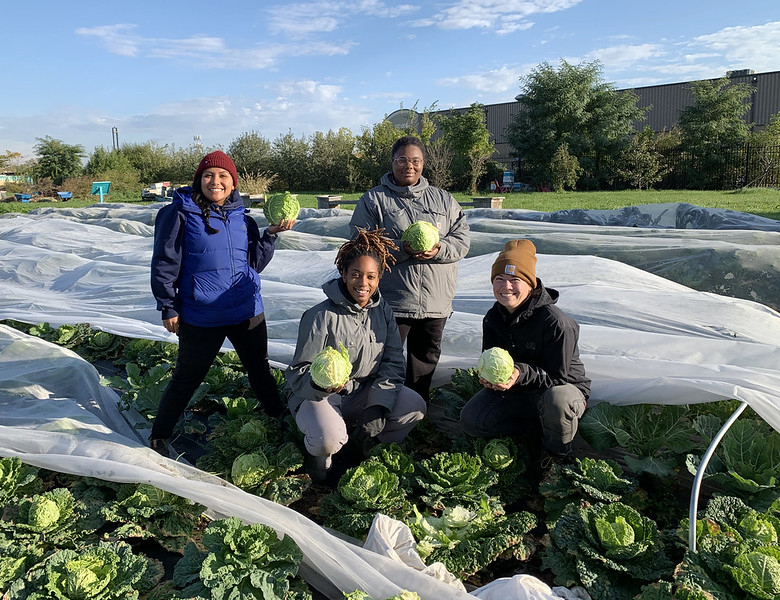
BGR partner Keep Growing Detroit (KGD) was established to promote a food-sovereign city, in which most of the fruits and vegetables Detroiters consume are grown by residents within city limits. In 2021, over half of Detroit households were food insecure; 30,000 Detroiters did not have access to a full-service grocery store; 40 percent of Detroit households relied on SNAP assistance, and 35,000 Detroit children were enrolled in WIC.
Urban agriculture can help address the need for healthy food in Detroit. This year’s BGR grant will support residents in achieving long-term gardening success and the positive health outcomes associated with gardening. KGD will supply cold-weather seeds, Detroit-grown transplants, compost, and row cover to more than 1,700 gardens participating in the Garden Resource Program. The project also supports gardening and cooking classes, community work days, garden tours, and other educational events. A longitudinal study of the Garden Resource Program found that tending a garden with the support of the program contributed a substantial amount of fruit and vegetables to families’ diets; saved significant money on food costs; and provided benefits to participants’ physical and mental health. KGD expects its activities this year to benefit more than 26,000 Detroit residents.

BGR partner Keep Growing Detroit (KGD) was established to promote a food-sovereign city, in which most of the fruits and vegetables Detroiters consume are grown by residents within city limits. In 2021, over half of Detroit households were food insecure; 30,000 Detroiters did not have access to a full-service grocery store; 40 percent of Detroit households relied on SNAP assistance, and 35,000 Detroit children were enrolled in WIC.
Urban agriculture can help address the need for healthy food in Detroit. This year’s BGR grant will support residents in achieving long-term gardening success and the positive health outcomes associated with gardening. KGD will supply cold-weather seeds, Detroit-grown transplants, compost, and row cover to more than 1,700 gardens participating in the Garden Resource Program. The project also supports gardening and cooking classes, community work days, garden tours, and other educational events. A longitudinal study of the Garden Resource Program found that tending a garden with the support of the program contributed a substantial amount of fruit and vegetables to families’ diets; saved significant money on food costs; and provided benefits to participants’ physical and mental health. KGD expects its activities this year to benefit more than 26,000 Detroit residents.




